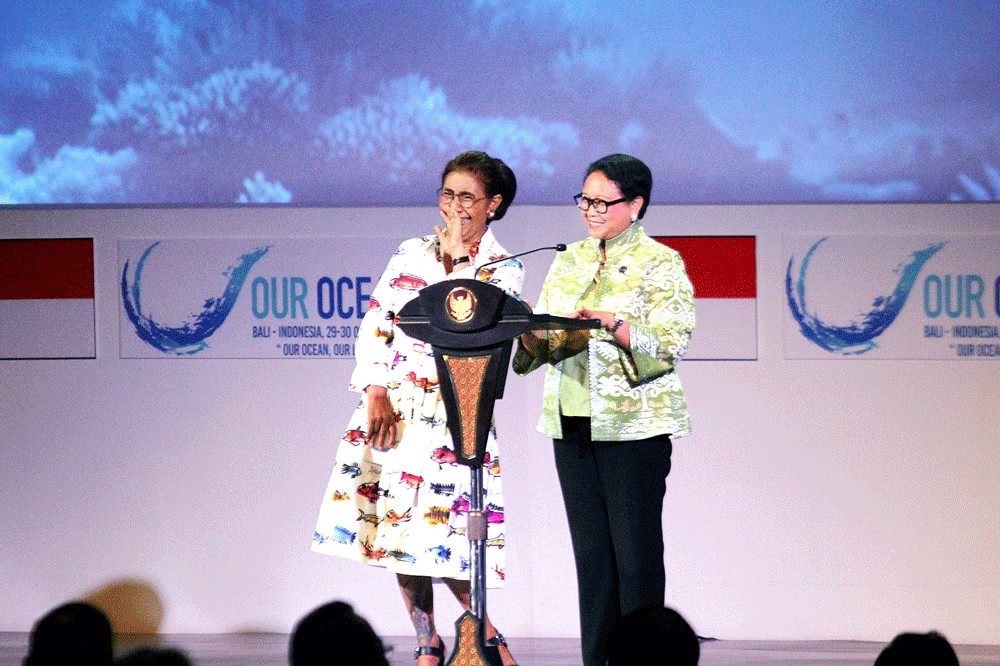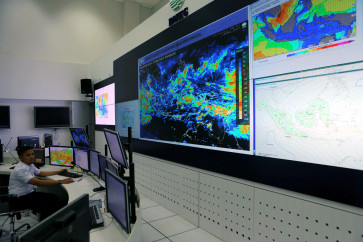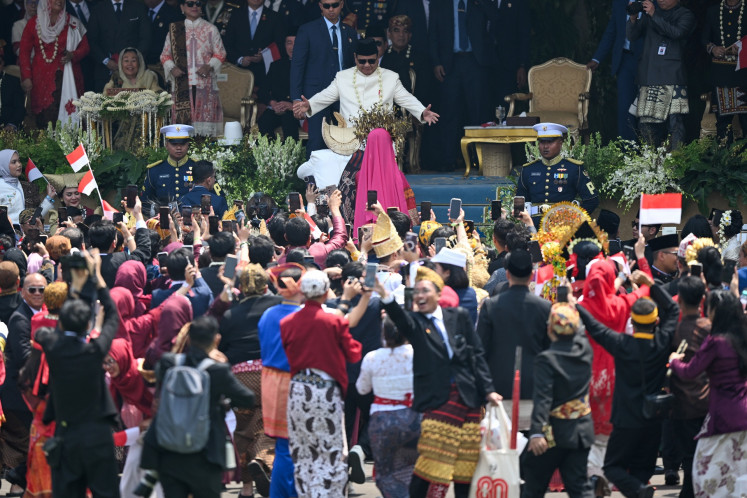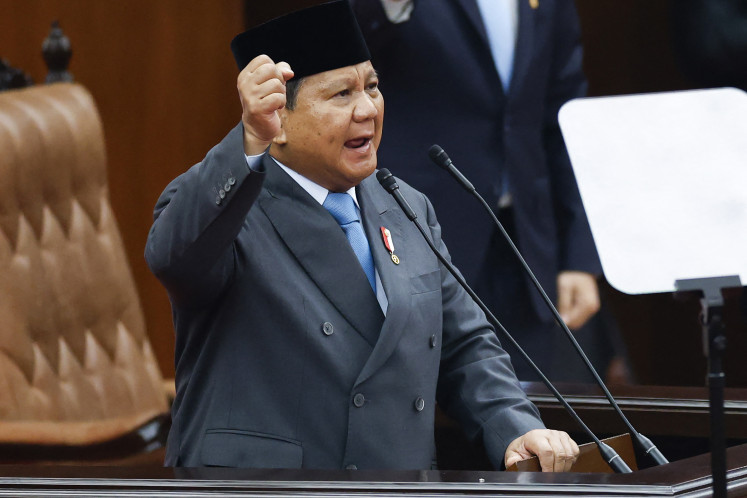Popular Reads
Top Results
Can't find what you're looking for?
View all search resultsPopular Reads
Top Results
Can't find what you're looking for?
View all search resultsSave our oceans
While we depend on the world’s oceans for our livelihood, food and transportation, they have also become major dustbins.
Change text size
Gift Premium Articles
to Anyone
While we depend on the world’s oceans for our livelihood, food and transportation, they have also become major dustbins.
An article titled The scent of death in our oceans published in Lancet earlier this month cited a study by the Norwegian Polar Institute that revealed only 14 percent of the world’s plastic production was recyled effectively every year. About 8 to 10 million tons of plastic enters the oceans, more than 90 percent of which ends up on the seabed.
Indonesia, the world’s largest archipelagic country and one of the largest producers of marine debris, is hosting the fifth Our Ocean Conference (OOC) in Bali this week, gathering heads of state, scientists, activists and policymakers to strengthen action to preserve the oceans.
The initiative, spearheaded by leaders including former United States president Barack Obama in 2014, has united countries and the private sector to do more for our “blue gold”.
Many commitments have been made, but less achieved. In earlier conferences, participants made 663 commitments, of which 206 commitments had been met, reports say. Now, as the conference host, Indonesia is calling for bold action to prevent worsening the crisis in the oceans.
Indonesia, however, should not look far to the herculean task to reduce marine debris and preserve ocean sustainability. While Indonesia itself has at least succeeded in increasing the country’s fisheries production at a sustainable level, the government is still struggling to reduce marine debris.
President Joko “Jokowi” Widodo’s administration issued last month a presidential regulation on a national action plan to reduce marine waste. The regulation followed the failure to rally the support of local administrations to curb the use of plastics.
As a thriving economy, the country has also seen plastic food wrappings and bottles increasingly littering its beaches. So irritating is the eyesore that many have spontaneously joined beach-cleaning projects while on vacation.
Greenpeace Indonesia has blamed giants of the world’s fast-moving consumer goods for failing to contain plastic use of their products. But actually the plastic problem is more deeply rooted as local plastic producers have also grown alongside the plastic culture in society.
Indonesia also has yet to establish a good waste-sorting system, and most of this unsorted waste leads to landfills or waterways, eventually ending up in the oceans.
While preparing a better waste management system, the central and local governments should also build recyling factories for the plastic products. Technology has allowed recycled plastics to become materials for asphalt as well as everyday products such as shoes and bags.
The government should stop thinking plastic as excess that can be taken care of later, but instead consciously plan the plastic cycle from production until it becomes waste.
The same goes for other countries. Better waste management and good recycling plants are expected to at least slow down the pace of plastic use in society.
Strong massive action to combat marine debris should begin at home in every country, before it all ends up at sea.










